CCTV News:On the 13th, Russian President Vladimir Putin reviewed the officers and men and equipment participating in the Oriental 2018 military exercise, and said that the Oriental 2018 exercise showed that the Russian army could resist major military threats. Japanese media said that although the Russian side stated that the exercise was not aimed at a third party, in view of the deteriorating relations between Russia and the United States, the exercise may be aimed at containing the United States and its allies Japan and South Korea.
Putin: Russian army can resist major military threats.
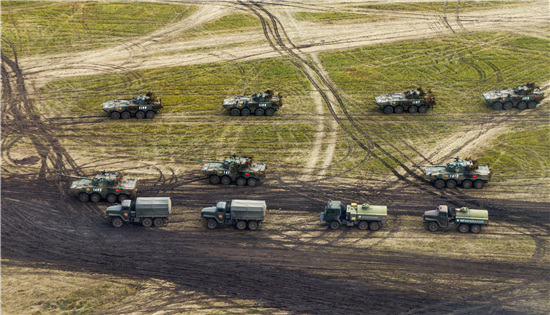
On the 13th, Russian President Vladimir Putin arrived at the Chugor training ground in the Outer Baikal Territory by helicopter, and reviewed the officers and men and equipment participating in the Oriental 2018 military exercise. Officers and men of the eastern and central military regions of the Russian armed forces and troops from China and Mongolia participated in the review. The "Oriental -2018" exercise is the largest military exercise in Russia since 1981. The Russian army has more than 300,000 participants, 36,000 participating equipment, more than 1,000 aircraft and nearly 80 ships. Putin said that the "Oriental -2018" exercise shows that the Russian army can resist major military threats.
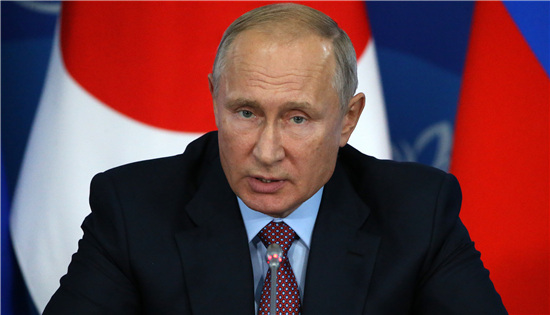
Russian President Vladimir Putin: "I want to tell Russian soldiers that our task is to be prepared to defend national sovereignty, national security and national interests, and support our allies if necessary."
Japanese media: Russian exercises or to contain the United States, Japan and South Korea
In the eyes of western media, Putin’s remarks are obviously addressed to the United States and its allies.
Japanese ANN TV host: "The largest military exercise held in Russia after the Cold War was officially launched from Siberia to the Sea of Japan. The Russian Ministry of Defence said that the purpose of this exercise is defense, and no country has been set as an imaginary enemy. However, Russia-US relations are deteriorating, and this exercise may be to contain the United States and its allies Japan and South Korea. "
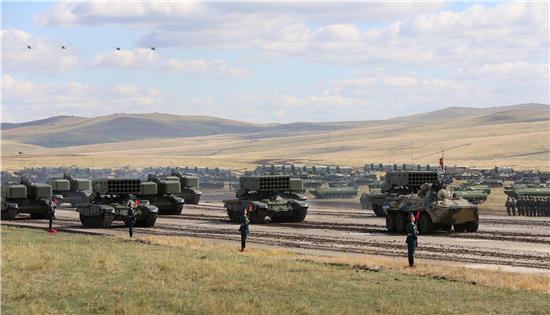
In recent days, the Russian "Oriental -2018" military exercise is in full swing on land, sky and sea, and the location of the exercise makes Japan very sensitive. On September 12th, ships of the Pacific Fleet, destroyer Fast and two missile boats launched the "Sandfly" cruise missile. Accurately hit a surface target in the Sea of Okhotsk from a distance of 100 kilometers. On the southeast side of the Sea of Okhotsk is the disputed island between Russia and Japan.
Abe urges settlement of Japan-Russia territorial dispute "When to do it now?"
On the 10th, Japanese Prime Minister Shinzo Abe, who visited Vladivostok, made the greatest wish of this trip to resolve the territorial dispute between Russia and Japan. On the 12th, at a meeting of the Eastern Economic Forum, Abe called for the settlement of the territorial dispute between Japan and Russia, and turned the four islands into a "symbol of Japan-Russia cooperation".
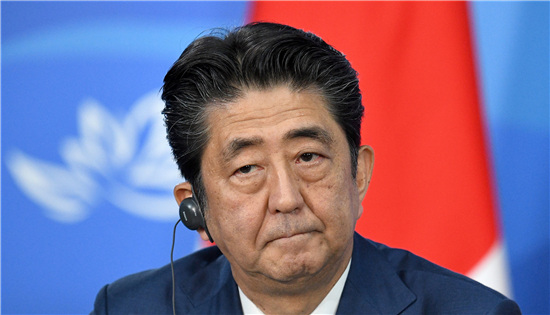
Japanese Prime Minister Shinzo AbePresident Putin, witnessed by a large audience, let us reconfirm each other’s will to achieve our goals, and let us move forward with this issue in mind. If we don’t do it now, when will we do it? Who will do it if we don’t do it? "
Putin, on the other hand, threw an idea that shocked the audience.
Russian President Vladimir PutinAn idea suddenly occurred to me, let’s conclude a peace agreement, maybe not now but before the end of this year, without preconditions.
Russian media: Putin’s proposal surprised the Japanese side
Abe aside, in the thunderous applause at the scene, did not speak. Russian media reported that Putin’s proposal surprised the Japanese side, which can be seen from the reaction of Japanese journalists in the news center. They first asked the translator to repeat Putin’s words, and then began to call the editorial department.
Japanese TBS TV reporter: "I have been typing on the computer to record what the leader said. When I heard Putin’s proposal, I was completely stunned. I went back to watch the TV screen and couldn’t move. I was very excited. We immediately called and asked to translate this sentence again. We thought for a long time whether to broadcast it on the live broadcast. "
Russian media: Putin has not received Abe’s reply.
According to Russian news agency Tass on the 12th, Kremlin spokesman peskov revealed that Putin has not received Abe’s reply.
Japan: the position of resolving territorial disputes before talking about peace treaties remains unchanged.
On the same day, Suga Yoshihide, Chief Cabinet Secretary of Japan, stressed in Tokyo that "the policy of the Japanese government will not change", that is, the territorial dispute will be settled first, and then the peace treaty will be discussed.
Japanese media: Putin’s speech "may shake Japan"
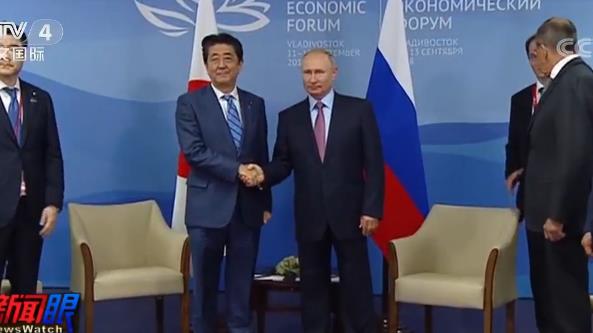
Japan’s Common Network reported that officials at the Japanese Prime Minister’s residence believed that Putin’s speech "may shake Japan". The Japanese government will first analyze the true intention of Putin’s speech. However, Russian satellite network quoted experts as saying that Putin’s proposal was a political gesture made in good faith. But for the Japanese, this is a matter of principle and national pride. If Japan abandons its claim to the disputed islands, it will be tantamount to political suicide for the Japanese government and will only cause anger to burst in Japan.
During Abe’s visit to Russia, the heads of the two countries held their 22nd meeting. Putin also invited Abe to watch the final of the international judo competition in Vladivostok. The media photographed them talking and laughing in the stands, and the atmosphere was harmonious. According to Kyodo News, the two sides reached an agreement on developing common economic activities in the disputed territory, such as seafood farming, greenhouse vegetable cultivation, wind power generation and waste reduction, but the issue of island ownership has not progressed. Public opinion believes that the warming of economic cooperation between the two countries has not contributed to the settlement of territorial issues as expected by Japan. The crux lies in the fact that Japan has stood on the side of the United States on security issues in the context of increasingly tense US-Russian relations.